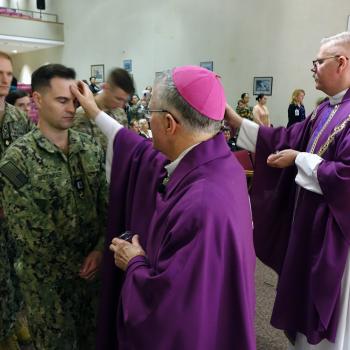"Here I am" is also an oath, an oath to continue to be in this relationship. Without contradicting myself I cannot say "I love you now, but not later." To place a temporal limit on my love is to deny that I love (Jean-Luc Marion, Erotic Phenomenon, trans. Stephen E. Lewis [Chicago: U of Chicago, 2007] 185). "I love you " means "I love you now and in the future." Love is faithful and faithfulness is temporal; faithfulness necessarily means faithfulness into the future. The figure of that temporality, however, is eternity rather than mere time.
But what happens when love ends? Since the intimacy of love is not created by a single person, the covenant and the future that the intimacy of love creates cannot be destroyed by the act of a single person. If one of the lovers denies his love and ceases to be faithful, it does not follow that the covenant of love has been erased.
A person who denies the oath inherent in an act of love acts violently. He or she tries to destroy the beloved by treating the relationship to that beloved as something that belongs to one like a mere piece of property: my relationship rather than ours. Denying the covenant is like saying, "The covenant of our love belongs to me. It is something that I created at will, so it is something that I can annihilate at will." To be in the world in that way is to lie. Worse, implicitly it is to try to destroy the beloved with the lie by destroying the beloved's future, his or her value.
But we know that lovers do part, sometimes much to the surprise of one of them. What do we make of the uncertainty of love? I can't assure that someone does or will love me. I may have faith—trust—that my beloved will continue to love me. But I do not and cannot have certainty that she will.
In spite of that, I can be assured; assurance comes in my faithfulness to the covenant that I have made with her rather than in her faithfulness to me. I am a lover only to the degree that I remain faithful to the covenant of love. But that means that I am a lover only to the degree that I expose myself to the other person in love and to the uncertainty implicit in that exposure.
The knowledge of love is not certainty. It is, rather, the knowledge bequeathed by faithfulness to uncertainty, in other words by faithfulness to the future. To a Christian this is hope. Genuine love is always also hope: I have been loved, and I continue to love in faith and hope.





